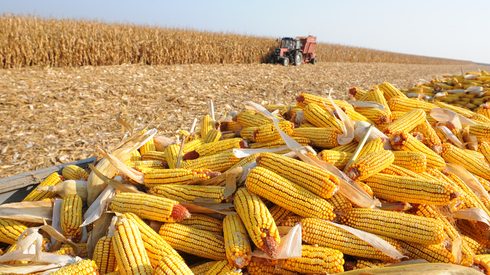The latest interventionist measure imposed by Argentina’s government, a 30-day export ban on beef to control domestic inflation, is likely to be counterproductive and unlikely to achieve its goal in the short term, trade sources have told Agricensus.
The ban has provoked angry reaction from farmers who have now ceased commercialization of cattle for nine days and could lead to further actions amind mounting frustration.
The measure was made official by the government of President Alberto Fernandez on May 20, but will bring more uncertainty to the sector and its market players instead, potentially impacting planting decisions for next season, among other consequences.
“The latest interventionist measure is counterproductive in the short term, and unlikely to have a meaningful effect” Agribusiness consultant, Ivan Ordonez said in an interview to Agricensus, with only a longer ban likely to have any impact.
“A minimum of six months [of the beef export ban] is needed in order to have an impact on domestic supply of beef, which would then help curb inflation,” Ordonez added.
Farmers across the sector have voiced their discontent by protesting against the measure and ceasing commercialization of cattle for nine days from May 20, furthermore farm groups have threatened to suspend grain sales to add to the protest action.
“Market players in the industry are very worried about what is happening, and what the government can do next,” an Argentinean grain broker told Agricensus.
“It is just fuelling uncertainty in the sector,” the broker added and could have consequences for the forward planting.
There is a risk that if the government imposes further interventionist measures in grains, some farmers may migrate to soybean planting instead, as farmers can switch to more profitable crops if they see an opportunity in doing so.
Much of the country’s corn production goes to the export market, while soybeans still have a considerable domestic crush sector – potentially making it the safer option if exports are threatened.
“The shift from corn to soybean can happen quite quickly, with the planting decision window closing by around September”, said the grain broker.
Memories of 2006
Many Argentina-based trade sources remember what happened in 2006, when the government of ex-President Cristina Fernandez closed beef exports, initially for six months but the ban ultimately lasted for about ten years.
This resulted in the livestock sector shrinking drastically with many producers leaving the industry as the cattle herd fell from 57.5 million heads to under 48 million heads during the period, and meat-packing plants saw about 140 plants close as a result.
This also had an impact in grains, with the planted area of corn and wheat dropping by over 40% on the year in 2008, to a combined of 7.75 million hectares, partly due to the ban on exports.
What is next?
“A permanent ban in beef exports as would only risk more political instability and bring more uncertainty to the sector” said Ordonez.
Furthermore, Argentina is in an election year and members of the lower and upper chambers of the government will be selected in October.
There is consensus among economists that the latest measure would not help with the sky-rocketing inflation being experienced, but it is a measure to gain votes instead.
“Further interventionist measures are unlikely to happen before the elections, but after the elections anything is possible,” said the Argentine grain broker.






